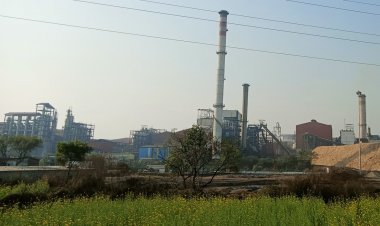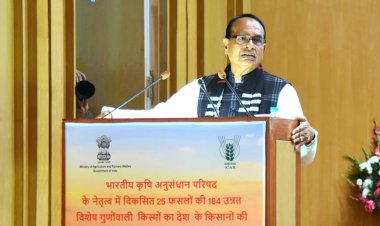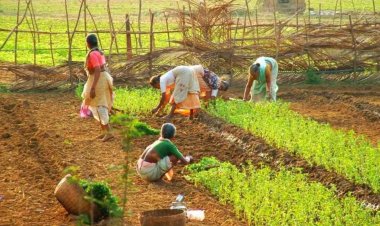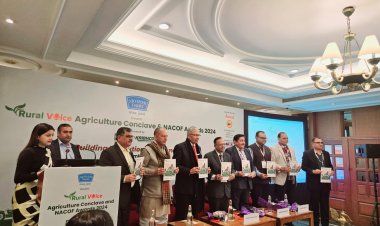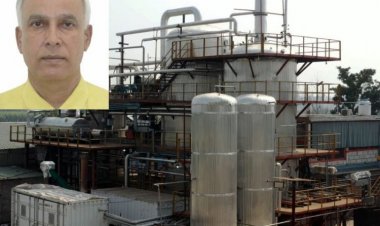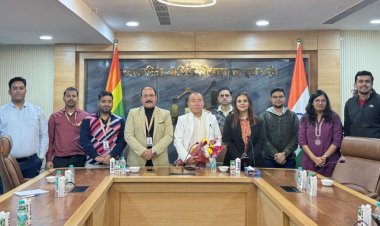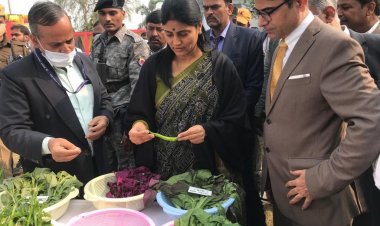Sustainable food system requires innovation, investment and right policies: WRI
The World Resources Institute has said in a report that all countries need to take four steps for a sustainable food system. These steps are innovation, increase in investment, change in behavior and policy steps.
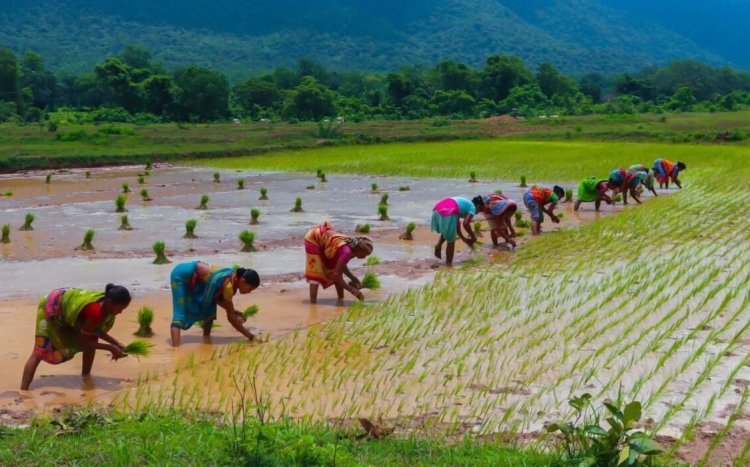
An important step towards sustainable food was taken at the United Nations Climate Conference (COP 28) held in Dubai last year. As many as 159 world leaders agreed to the Emirates Declaration on Sustainable Agriculture, Resilient Food System and Climate Action.
This was the first time that countries put agriculture at the center of national climate and other policies and agreed to increase investment in sustainable food systems. It was also agreed that progress in this direction would be reviewed in COP 30 to be held in 2025. The World Resources Institute has said in a report that all countries need to take four steps for a sustainable food system. These steps are innovation, increase in investment, change in behavior and policy steps.
It said that agriculture and the food system is responsible for one-third of greenhouse gas emissions in the world. This is also the main reason for the loss of biodiversity and pollution of freshwater, which has a negative impact on food security and livelihood. The result is seen in the form of humanitarian crises, competition for resources, migration and war.
The report says that such risks will increase further in the coming times as the demand for food items will increase by 50% by the year 2050. On the other hand, due to climate change, crops will be damaged and the risk of disasters will increase. It would be difficult to predict such incidents.
The Emirates Declaration has set a time limit of 2 years for progress in this direction. The COP 29 ministerial meeting is to be held in Baku, Azerbaijan, in which progress in this direction will be discussed and the full progress report will be presented at the COP 30 conference to be held in Belém, Brazil.
Innovation in Agriculture
The first of the four steps suggested by the World Resources Institute is innovation. It says that new scientific steps will have to be taken to increase agricultural productivity and adapt to the changing climate. This innovation will not be limited to agricultural technology or new varieties of seeds, although that is important. This innovation also needs to be done in delivery services where farmers and others involved in the food system need help.
It has said that along with increasing agricultural productivity, there is a need to move away from the use of chemicals and avoid planting the same crop again and again. Instead, locally grown diverse crops should be grown. For this, it has identified crops like millet, groundnut, sorghum, sweet potato. It has said that mixed farming is necessary to save soil and water.
Increase in Investment
The World Resources Institute says the cost of returning to low-carbon practices is too high. The Growing Better report by the Food and Land Use Coalition (FOLU) states that $300 to 350 billion is needed every year to adopt sustainable food systems. This is a huge amount. But compared to the hidden negative costs of the current food system, this is very small. In the Food System Economics Commission Global Policy Report released this year, it has been estimated that this cost is 15 trillion dollars annually. This is more than the total economic value of the crops grown every year.
On the contrary, a sustainable food system can give us economic benefits of 5 trillion dollars every year. Folu's Future Fit for Food and Agriculture report claims that if $205 billion (less than two percent of food sector revenue) is invested annually from 2025 to 2030, emissions from the food system could be reduced by approximately. This will be reduced to half and it will have many benefits.
According to the report, only 4.3% of climate finance goes to agriculture and food systems and even of this, only 0.3% goes to small farmers. As far as government finance is concerned, currently subsidies worth 7 trillion dollars are given every year on fossil fuels, agriculture and fisheries. This has a negative impact on climate and nature.
Behavior Modification
It is clear that the problem of the food system cannot be solved just by changing the method of production. What to produce often depends on consumption patterns. For example, the increasing demand for beef, especially in developed and middle-income countries, is increasing deforestation and having a major adverse impact on the environment. Beef production requires 20 times more land. Emissions are 20 times higher for one gram of meat-based protein than for one gram of plant-based protein.
Currently, a large part of the food we produce is lost or wasted. About 24% of the food calories produced each year in the world are not eaten. This loss is around one trillion dollars annually and causes 8 to 10% of greenhouse gas emissions. If this loss is halved, the world demand for food will reduce by 15% and the pressure on land to produce it will also reduce.
Policy Steps
The report says government policies set incentives for producers, traders, investors and others involved in the food system. These policies decide where, what and how people grow, buy processed food and what they eat. This situation is different in every country. Governments around the world provide more than $700 billion to the agricultural sector each year, but much of this spending is wasted. This acts as an incentive for harmful practices such as change in land use, excessive use of chemicals and soil erosion. This affects soil health and water quality, both of which significantly impact agricultural productivity.
According to research by the World Bank and IFPRI, for every one billion dollars spent by the government on agriculture, the average farmer gets a benefit of $0.35. Additionally, the policy of promoting food crops for biofuel is changing the use of land for food production, which has a negative impact on food security and climate.



 Join the RuralVoice whatsapp group
Join the RuralVoice whatsapp group



























